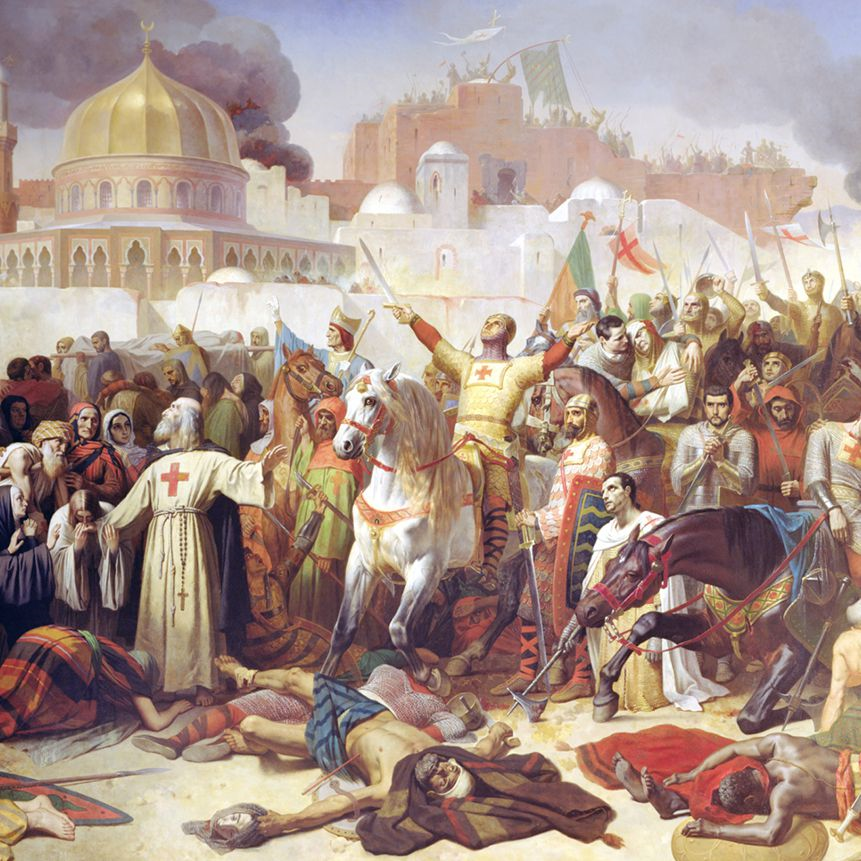More languages
More actions
mNo edit summary Tag: Visual edit |
mNo edit summary Tag: Visual edit |
||
| Line 6: | Line 6: | ||
Christianity (along with most religions in general) has been used by the [[ruling class]] during various stages of economic and historical development, mostly as a tool of justifying the social and economic order relative to that historical epoch, which would further secure the power and wealth of said ruling class. Things such as a "divine mandate" or a "god-given misson" and things of that nature have been used, be it in past or present eras, to legitimize [[slavery]]<ref>{{Citation|author=Edward J. Cashin|year=2001|title=Beloved Bethesda : A History of George Whitefield's Home for Boys|title-url=https://books.google.com/books/about/Beloved_Bethesda.html?id=XEmvyv3LO2AC|publisher=Mercer University Press|isbn=9780865547223|trans-lang=English}}</ref><ref>{{News citation|author=Juan Siliezar|newspaper=Harvard Gazette|title=Slavery alongside Christianity|date=2019-1-7|url=https://news.harvard.edu/gazette/story/2019/01/a-harvard-exhibit-on-slavery-and-christianity/|retrieved=2022-6-16}}</ref>, [[feudalism]]<ref>{{Citation|author=Gerd Althoff|year=2007|title=Christian Values and Noble Ideas of Rank and their Consequences on Symbolic Acts|title-url=https://journals.openedition.org/e-spania/4053}}</ref>, [[fascism]]<ref>{{Citation|author=Roger Eatwell|year=2003|title=Reflections on Fascism and Religion|title-url=https://web.archive.org/web/20070501024852/http://staff.bath.ac.uk/mlsre/ReflectionsonFascismandReligion.htm|trans-lang=English}}</ref>, [[genocide]]<ref>{{Citation|author=Willliam E. Weeks|year=1996|title=Building the Continental Empire: American Expansion from the Revolution to the Civil War|title-url=https://books.google.com/books?id=vcsk8UsgNRsC|page=61|trans-lang=English}}</ref>, and [[capitalism]].<ref>{{Citation|author=Kate Bowler|year=2013|title=Blessed: A History of the American Prosperity Gospel|title-url=https://oxford.universitypressscholarship.com/view/10.1093/acprof:oso/9780199827695.001.0001/acprof-9780199827695|isbn=9780199827695|trans-lang=English}}</ref> | Christianity (along with most religions in general) has been used by the [[ruling class]] during various stages of economic and historical development, mostly as a tool of justifying the social and economic order relative to that historical epoch, which would further secure the power and wealth of said ruling class. Things such as a "divine mandate" or a "god-given misson" and things of that nature have been used, be it in past or present eras, to legitimize [[slavery]]<ref>{{Citation|author=Edward J. Cashin|year=2001|title=Beloved Bethesda : A History of George Whitefield's Home for Boys|title-url=https://books.google.com/books/about/Beloved_Bethesda.html?id=XEmvyv3LO2AC|publisher=Mercer University Press|isbn=9780865547223|trans-lang=English}}</ref><ref>{{News citation|author=Juan Siliezar|newspaper=Harvard Gazette|title=Slavery alongside Christianity|date=2019-1-7|url=https://news.harvard.edu/gazette/story/2019/01/a-harvard-exhibit-on-slavery-and-christianity/|retrieved=2022-6-16}}</ref>, [[feudalism]]<ref>{{Citation|author=Gerd Althoff|year=2007|title=Christian Values and Noble Ideas of Rank and their Consequences on Symbolic Acts|title-url=https://journals.openedition.org/e-spania/4053}}</ref>, [[fascism]]<ref>{{Citation|author=Roger Eatwell|year=2003|title=Reflections on Fascism and Religion|title-url=https://web.archive.org/web/20070501024852/http://staff.bath.ac.uk/mlsre/ReflectionsonFascismandReligion.htm|trans-lang=English}}</ref>, [[genocide]]<ref>{{Citation|author=Willliam E. Weeks|year=1996|title=Building the Continental Empire: American Expansion from the Revolution to the Civil War|title-url=https://books.google.com/books?id=vcsk8UsgNRsC|page=61|trans-lang=English}}</ref>, and [[capitalism]].<ref>{{Citation|author=Kate Bowler|year=2013|title=Blessed: A History of the American Prosperity Gospel|title-url=https://oxford.universitypressscholarship.com/view/10.1093/acprof:oso/9780199827695.001.0001/acprof-9780199827695|isbn=9780199827695|trans-lang=English}}</ref> | ||
Christianity, along with other organized and dogmatic religions, | Christianity, along with other organized and dogmatic religions, has always been, to some extent, a regressive force in regards to the development of civilization. | ||
Revision as of 19:07, 17 June 2022

Christianity is an abrahamic and monotheistic religion thats dogma is based around the writings contained within the bible, a set of myths imperfectly edited and translated for centuries. Christianity is currently the most largest religion on Earth, it having about 2.6 billion adherents as of 2020.[1]
In spite of many christians claiming that they have the "one and true" faith, there exists over 45,000 sects of christianity on Earth, of which, the roman catholic church is the largest in terms of membership, followed by the protestantism (which itself is extremely fragmented), then eastern orthodoxy.[2]
Christianity (along with most religions in general) has been used by the ruling class during various stages of economic and historical development, mostly as a tool of justifying the social and economic order relative to that historical epoch, which would further secure the power and wealth of said ruling class. Things such as a "divine mandate" or a "god-given misson" and things of that nature have been used, be it in past or present eras, to legitimize slavery[3][4], feudalism[5], fascism[6], genocide[7], and capitalism.[8]
Christianity, along with other organized and dogmatic religions, has always been, to some extent, a regressive force in regards to the development of civilization.
History
Early Development
References
- ↑ "World Population" (2020). countrymeters.info.
- ↑ Donavyn Coffey (2021-2-27). "Why does Christianity have so many denominations?" Live Science.
- ↑ Edward J. Cashin (2001). Beloved Bethesda : A History of George Whitefield's Home for Boys. Mercer University Press. ISBN 9780865547223
- ↑ Juan Siliezar (2019-1-7). "Slavery alongside Christianity" Harvard Gazette. Retrieved 2022-6-16.
- ↑ Gerd Althoff (2007). Christian Values and Noble Ideas of Rank and their Consequences on Symbolic Acts.
- ↑ Roger Eatwell (2003). Reflections on Fascism and Religion.
- ↑ Willliam E. Weeks (1996). Building the Continental Empire: American Expansion from the Revolution to the Civil War (p. 61).
- ↑ Kate Bowler (2013). Blessed: A History of the American Prosperity Gospel. ISBN 9780199827695
